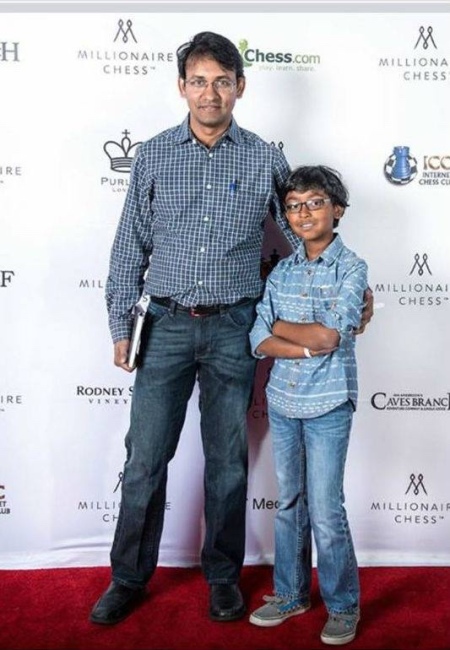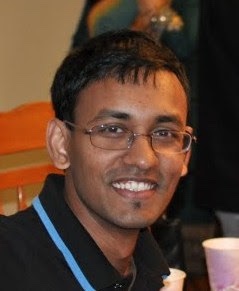Ashik Uzzaman was born and raised in Dhaka, capital city of Bangladesh. He finished his post-graduation in Economics from University of Dhaka while completing diploma in software engineering from NIIT. He came to USA with job as a java developer in 2005 and currently working as a Senior Software Engineer at Roku. He, along with his son Ahyan Zaman, is a regular participant in chess tournaments on the west coast.

How old were you when you first learned how to play chess? Who taught you?
– I was about 8 years old when I learned to play chess. I learned it from my cousin.
How has chess effected your decision making process off the board?
– Chess makes you efficient considering many possible outcomes in parallel. This helped me consider pros and cons of making any decision carefully. Chess also helped me learn when to take time, observe and weigh in detail before making any conclusions. So I think it helped me in my career choice, my education and my social skills.
How did your earlier career choices lead you to where you are now?
– To accommodate my chess tournament schedules, I picked relatively easier subject (Economics) during under graduate program. But later I focused on building my career as a Computer Programmer leaving chess for a long period of time.
How would you define your chess style?
– I was initially very aggressive attacking player. But as I started reading lots of chess books, I progressed to be a strategic positional player. I like Capablanca or Karpov’s style of accumulating small positional advantages.
Does your chess style transfer over into your business decisions as well?
– Yes. I often make decisions that are good for my team in the long term instead of looking at the immediate task in hand. Also I do a lot of trade off comparisons while deciding which option to choose while solving a problem.
What has been your worst chess mistake which has given you the biggest lesson?
– My biggest mistake was not focusing on the end game which resulted in loosing lots of games despite having advantages in the middle game.
What has been your worst career mistake that has given you the biggest lesson?
– My worst career mistake was not moving into Engineering Management roles despite getting several opportunities. I have been comfortably working as a software engineer in individual contributor roles for 19 years now. I am glad to share that I have amended the mistake and joining a company next month as an Engineering Manager.
Do you think chess has helped you to become more resilient in life?
– Yes. Chess teaches us perseverance and endurance. When I am stuck with a problem, I dont give up easily. I patiently continue to retry until I succeed. This is a direct habit learned from playing long games chess with intense struggles.
What do you hope to achieve professionally during the next couple of years?
– I want to see myself making good impact in my new project and hopefully take the pre-IPO company I am joining to public.

What is the biggest challenge to achieving that goal?
– Meeting continuous aggressive deadlines of multiple software projects; hiring and retaining the best engineers of bay area.
How would you relate these goals and challenges to the chessboard?
– In chess we have to keep eyes on our own weak squares and king safety and at the same time exploit our opponents’ weaknesses all throughout the game without slipping. Just as challenging in life.
Could you please leave us with a favorite piece of chess wisdom to conclude this interview?
– “Tactics is knowing what to do when there is something to do; strategy is knowing what to do when there is nothing to do.” – Savielly Tartakower

Comments